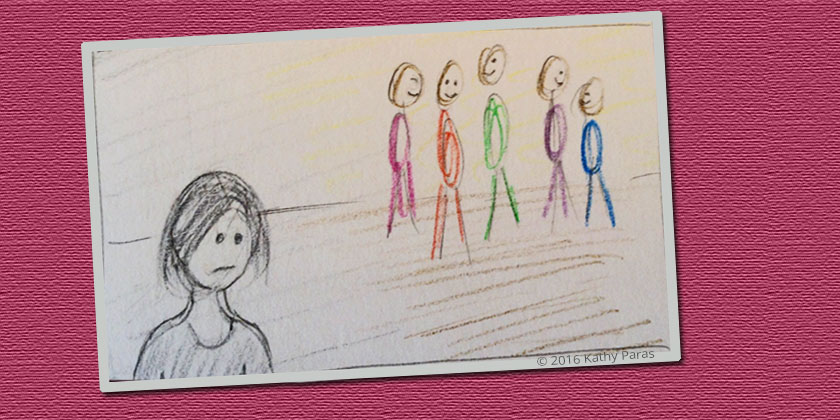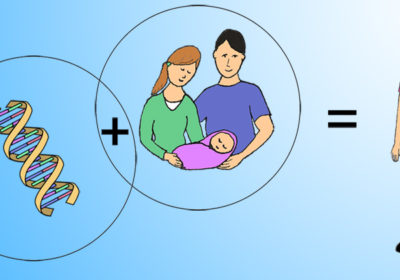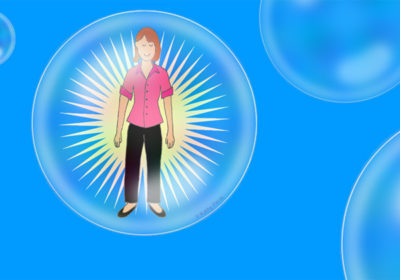Have you ever felt like the only one who doesn’t get it? Like others instinctively navigate the basics of life and you constantly struggle to catch up? Constantly struggle and fail? Like there’s something fundamentally different about you?
How much time and energy have you spent wondering why you’re such a misfit or fighting to just get through each day the best you can because, well, this is just the way things are for you?
The good news is that these experiences do not mean there is something permanently wrong with you. There may simply be a few basic concepts and skills you haven’t yet learned. And you are not alone. You are not the only one who missed out or misunderstood.
It can be frightening to admit that you lack fundamental life skills that others have, especially if you’ve learned to overcompensate in other areas or learned workarounds and have become successful. Letting go of that image and acknowledging shortcomings is hard. Painfully hard.
That pain can easily convince us that it’s better to avoid the truth. But understanding a painful situation actually feels better in the long run than the confusion and chaos that comes from the unknown—from not understanding what is making you feel sad and scared and helpless.
Only with a clear understanding of reality can you make effective choices and move forward in a healthier way.
Skills Assessment
1. Do you captain your own ship?
Or are you someone else’s cargo? As we grow into adulthood we must transition from dependence to independence. We must stop making choices based on others’ standards or direction or a lingering need for acceptance. And whether or not our family accepts it, conduct our own life, governed by our own inner compass, standards and beliefs.
This requires:
- Willingness to look honestly at ourselves—our outward behavior as well as our inner experience—and take responsibility for both.
- Continually striving to know reality, beyond what we’ve come to believe through our early life experiences, through the influence of others, and our own needs and fears.
- An inner compass. A solid identity and set of standards to base our choices on. The ability to approve our own decisions, to give ourselves credit. Otherwise we are just engineless craft drifting in the current of others choices and needs.
Some of us did not get inner confidence. We got insecurity and self-doubt. But we can develop that confidence. We can find and nurture an inner compass that can carry us through the darkest, most turbulent waters in a strong and solid craft of our own making.
2. Do you Recognize, Process and Accept Emotions?
Do you feel emotions? Physically? In your body? Can you name your emotions? Do you understand how they are driving your behavior? Or do you suppress and ignore them in order to get things done? In order to survive?
In the same way it is possible for a person in an extreme situation to suppress physical discomfort while responding to an urgent demand—like an injured soldier pushing through his own pain to carry a fallen comrade to safety—it is possible for human beings to suppress emotions. If they are suppressed for too long, we lose awareness of our internal reactions and what they mean. Some of us can exist with little understanding of our inner life. And because emotions are felt in the body, ignoring them requires ignoring aspects of our physical existence. This can lead to a dissociation from our body and a sense that our physical survival is out of our hands, beyond our understanding or control. This is a frightening way to live.
To conduct a successful life, we must understand and manage every aspect of our being—Intellectual, Physical, Emotional, Spiritual. Learning to identify, feel and accept our emotions gives us a level of self-knowledge that is a valuable and necessary element of our internal compass. We can learn how to develop appropriate responses. We can learn to recognize whether our reactions are in line with today’s reality or are learned reflexes from situations in our past that we need to grow beyond. And we can extend that self-awareness and acceptance to the way we treat others, developing healthier relationships.
3. Is the real you Visible?
Do you play a role? Wear a mask? Censor your words? Hide your mistakes?
We each exist to contribute something unique to the world. And to own that unique contribution. Not to remain anonymous. While we need to conduct ourselves appropriately to the situation— probably not a good idea to clown around or curse during a meeting with the CEO—there is a balance. If you speak your truth respectfully and appropriately, others’ disappointment or offense is their issue.
Sometimes our life experience makes it difficult to see the difference. Our perspective has been clouded. Or we never developed our own independent standards to guide us. We end up choosing what to make visible based on the reactions we get from others.
While input from others can help us learn, if we are in relationships that are less than healthy, the standards we learned may be skewed and inappropriate. Your “tribe” may have put you in a role that satisfies their need, and any deviation from that generates negative reactions. The coping mechanisms we develop to protect us from those negative experiences can become so ingrained we don’t even realize they are unhealthy, no longer necessary, or changeable.
Are you blocking your own self-expression in order to avoid negative results? Do you believe there is some bar you must reach before what you think or produce is ready to show the world?
If you’ve ever had the fleeting thought—They won’t let me be myself, consider that perhaps the truth is—I won’t let me be myself when I’m around them.
4. Can you Accept Mistakes?
Your own and everyone else’s?
Do you restrict yourself from trying things you don’t already know how to do? Does your inner voice criticize and berate you when you mess up? Do you set goals of perfection that you can never reach and end up doing nothing because you haven’t figured out the right way or found the right time? Do you find it difficult to watch someone else do something you know how to do, without directing or correcting their every action?
Mistakes are a necessary element of growth and a normal part of human life. All of it. Not just childhood.
In order to grow you must constantly present yourself for challenges you don’t already have the answers to. Try something, evaluate the results and adjust. You must collaborate with others and let them see you as you are. And let others experience opportunities for growth for themselves, not try to prevent their mistakes.
5. Do you approach responsibilities and interactions in a mature way?
If challenges in your life frequently generate a sense of Why is this so hard? Why am I unable to navigate this? or you find yourself withdrawing, making choices that isolate you, yearning to go home, to your comfort zone, your childhood, your family—people who accommodate you, whose behavior is familiar, then examining your level of emotional maturity can help you pinpoint valuable growth opportunities.
Mature adults:
- Understand their separateness from other people. They see and accept others as “people with lives” and the right to their own opinions, preferences and choices. They understand that others expressing their unique selves and living their lives their way is not a judgment or threat.
- Understand that meeting their needs is their responsibility. They don’t expect others to “just know” what they need, or to accommodate it.
- Base decisions on intellectual reasoning and responsibility. They are not driven solely by feelings.
- Learn from the past. Live in the present. Set realistic goals and adapt when things change.
- Continually choose to let go—of things and beliefs—making room for new ideas, new experiences and growth.
Pursuing Growth
These concepts are all inter-related. Digging into one area reveals another. They feed and influence and block one another. It’s messy and uncomfortable. Self-discovery is nothing like peeling an onion—with its neat, orderly layers that easily separate. What’s inside us is more like a tangled, knotted ball of twine set in concrete.
But if you educate yourself, remain open to new ideas and new possibilities, work through your own resistance and push yourself try out new ideas, new perspectives, new ways of approaching and conducting your life, be willing to fail, willing to let people see the mess that you are, let yourself feel, get out of your own head and constantly try to understand yourself and reality… you will make progress.
- Be careful not to equate your level of knowledge and skill with your inherent worth or value. Knowledge and skills are actively acquired through experience and effort. Your current level does not define who you are, only where you are today on your journey.
- Don’t believe your own press, or your first reaction. The more you find yourself arguing against a new idea or different perspective, feeling angered or threatened by it, the more likely it is that you are resisting an uncomfortable truth.
Each time you hit a new challenge or feel stalled, return to these three basic steps:
- Where am I? Understand the What’s and Why’s of you Now. The full reality. This requires introspection, self-awareness, self-reflection, and looking into your past with an open, objective attitude… toward both yourself and others who have influenced you.
- Why am I here? Accept and forgive the past and let it go. Forgive both yourself and others. You can’t change the past. You can’t make up for all you’ve spent or lost or didn’t get.
- What can I do? Act on your own behalf. Figure out what you must do to obtain the growth you need, educate yourself, talk to knowledgeable people, and practice. Practice, reflect, make adjustments… and repeat.
Growth happens slowly and builds. Each new understanding lays a foundation for the next level. In the same way you can’t learn calculus without first learning basic math, you must slowly expand your consciousness, adding new, broader, higher levels of understanding of yourself and life.
And that’s the whole point.
That’s our journey.
Are you going to sit this one out, stagnant and stuck where you are, or accept the challenge and embrace all that it could be?




